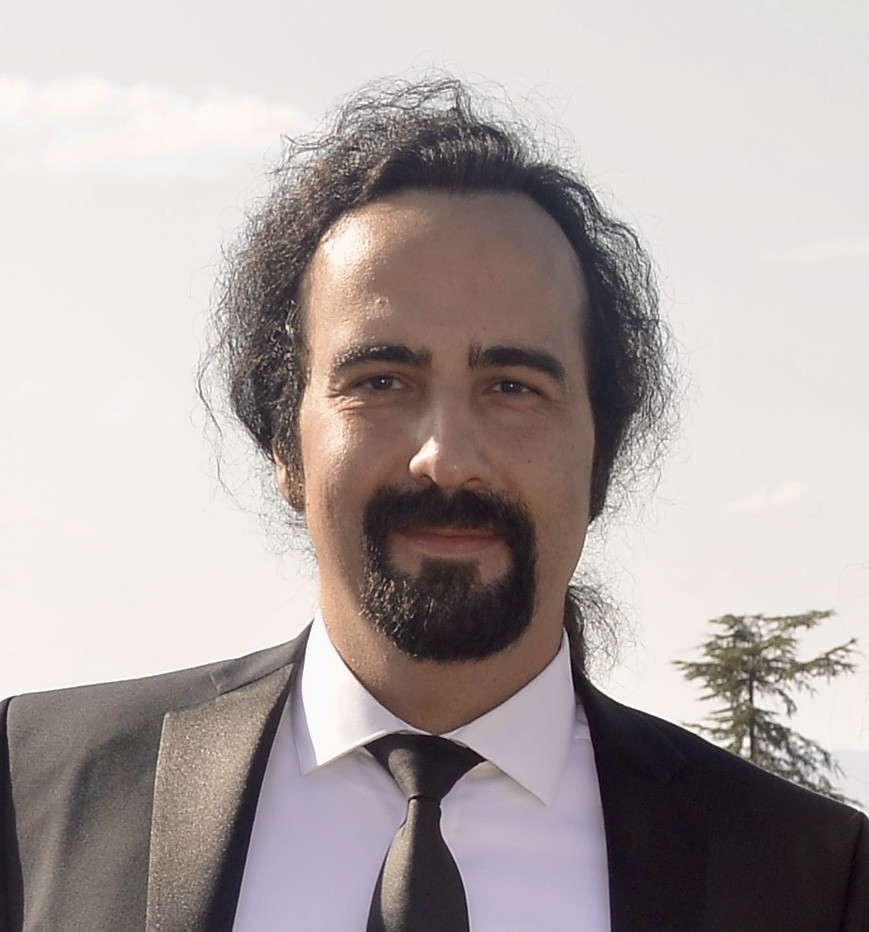
Biography – Prof. Alper Erturk (Fellow of ASME and SPIE) is the Carl Ring Family Chair in the G. W. Woodruff School of Mechanical Engineering at Georgia Institute of Technology, where he leads the Smart Structures & Dynamical Systems Laboratory. His theoretical and experimental research program is centered on the dynamics, vibration, and acoustics of passive and active structures for various interdisciplinary problems spanning from nonlinear vibration energy harvesting and bio-inspired piezoelectric actuation to metamaterial-based vibration attenuation and wireless ultrasonic power/data transfer, and most recently the leveraging of vibrations and guided waves in biomechanical systems. Prof. Erturk began at Georgia Tech in 2011 as an Assistant Professor, he was promoted to Associate Professor with tenure in 2016 (and Woodruff Faculty Fellow in 2017-2019), became a full Professor (and was named Woodruff Professor) in 2019, and was named Carl Ring Family Chair in 2022. Prior to joining Georgia Tech, he worked as a Research Scientist in the Center for Intelligent Material Systems & Structures at Virginia Tech (2009-2011). He has published 140+ journal articles, 250+ conference papers/abstracts, 5 book chapters, and 2 books. He authored a book entitled Piezoelectric Energy Harvesting (Wiley, 2011 & Chinese Edition, 2015) as a product of his dissertation and relevant research during 2007-2010 and co-edited a book on Advances in Energy Harvesting Methods (Springer, 2013). His publications have received more than 23,000 citations (h-index: 71) according to Google Scholar. Several of his publications are in the “highly cited paper” category of the Web of Science (top 1% in the fields of engineering, physics, and materials science). Prof. Erturk is a recipient of the NSF CAREER Award (2013) in Dynamical Systems. He received the 2015 Gary Anderson Early Achievement Award of the ASME Aerospace Division that is granted to a “young researcher in his/her ascendancy whose work already had an impact in his/her field within Adaptive Structures and Material Systems.” In 2016, he became a recipient of the Young Scholar Award (junior faculty level) of the Turkish American Scientists and Scholars Association (TASSA). He also received the 2017 C.D. Mote Jr. Early Career Award by the ASME Technical Committee on Vibration and Sound (Design Engineering Division) for “demonstrated research excellence in the field of vibration and acoustics.” Prof. Erturk was elected a Fellow of ASME in 2017 and a Fellow of SPIE in 2020 for “outstanding contributions to nonlinear energy harvesting, bio-inspired piezoelectric actuation, and metamaterials.” Most recently, he received the 2020 James W. Dally Young Investigator Award of the Society for Experimental Mechanics (SEM) for “significant contributions in education and demonstrated excellence in research in the field of experimental mechanics.” Two of his journal articles were recognized with the 2015 (inaugural) and 2017 ASME Energy Harvesting Best Paper Awards, and a more recent one in metamaterials domain was recognized with the 2021 Philip E. Doak Award of the Journal of Sound and Vibration (Elsevier). In terms of his accomplishments as a classroom teacher and research advisor, Prof. Erturk was a recipient of the 2016 Class of 1940 Course Survey Teaching Effectiveness Award and multiple Thank a Teacher certificates over the years; he was also the 2012 Class of 1969 Teaching Fellow and the 2018 Hesburgh Award Teaching Fellow. Several of his graduate students (S. Zhao, S. Shahab, S. Leadenham, C. Sugino, S. Tol, D. Tan, Y. Xia – separately) received Best Paper Awards in ASME IDETC and ASME SMASIS conferences in the last decade. Three of his students (S. Zhao, E. Skow, C. Sugino) received Sigma Xi Best MS Thesis and PhD Dissertation Awards. In terms of externally sponsored research, Prof. Erturk’s total project budget (as lead PI) is around $15m (with $7m as his lab’s share). He gave numerous invited lectures/seminars, keynotes, and plenary talks, including an Institute Lecture at IIT Kanpur in 2019. He has held Invited/Adjunct Professor positions at Politecnico di Milano (Mechanical Engineering) and at KAIST (Aerospace Engineering). Prof. Erturk has served as an Associate Editor for various journals such as Smart Materials & Structures (IOP), Journal of Intelligent Material Systems & Structures (SAGE), and Journal of Vibration & Acoustics (ASME); and is currently the Editor-in-Chief of Smart Materials & Structures. He received his BS (high honors) and MS degrees in Mechanical Engineering from METU (Ankara, Turkey) in 2004 and 2006, respectively, and PhD degree in Engineering Mechanics from Virginia Tech in 2009. Prof. Erturk’s MS thesis on the use of structural coupling and modification techniques for chatter prediction in spindle-tool systems received the Thesis of the Year Award of the METU Parlar Foundation in 2006. In 2008, during his PhD studies, he became the inaugural recipient of the Liviu Librescu Memorial Scholarship at Virginia Tech for “having the potential for scholarly achievement in teaching and research, and a demonstrated dedication to the welfare and well-being of others.” Prof. Erturk was an Elected Member of the ASME Technical Committee on Vibration and Sound under the Design Engineering Division (2011-2014, 2014-2017), and is an Elected Member of the ASME Adaptive Structures and Material Systems Branch under the Aerospace Division (2011-present). He was also the Founding Chair (2012-2014) of the ASME Energy Harvesting Technical Committee. He served on the organization, program, or technical committees of various ASME conferences (SMASIS, IDETC), SPIE Smart Structures/NDE, and PowerMEMS, among others. He established the Energy Harvesting Symposium of ASME SMASIS in 2012. He was the 2018-2019 SPIE Smart Structures/NDE Active and Passive Smart Structures and Integrated Systems Conference Chair and the 2018 ASME IDETC Mechanical Vibration and Noise Conference Chair. Most recently, he hosted and chaired the 33rd International Conference on Adaptive Structures and Technologies (ICAST 2024). Prof. Erturk is affiliated with the following at Georgia Tech: Center for Nonlinear Science, Center for Biologically Inspired Design, Institute for Materials, Institute for Robotics and Intelligent Machines, Institute for Electronics and Nanotechnology, Strategic Energy Institute, and Interdisciplinary Bioengineering Graduate Program.